OLD POST ALERT! This is an older post and although you might find some useful tips, any technical or publishing information is likely to be out of date. Please click on Start Here on the menu bar above to find links to my most useful articles, videos and podcast. Thanks and happy writing! – Joanna Penn
Podcast: Download (Duration: 48:33 — 24.5MB)
Subscribe: Spotify | TuneIn | RSS | More
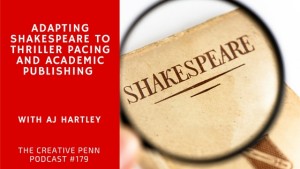
In the intro, I mention that Deadly Dozen, the box-set I was part of, hit the USA Today list AND the New York Times bestseller list – woohoo!
The podcast is sponsored by Kobo Writing Life, which helps authors self-publish and reach readers in global markets 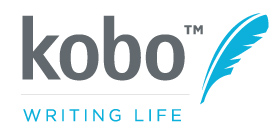
A.J. Hartley is the NY Times and USA Today bestselling author of mystery/thriller, fantasy, historical fiction, and young adult novels. He's also the Robinson Professor of Shakespeare studies at the University of North Carolina.
- Andrew talks about his career, writing the kind of books he wants to read himself and he reads in many genres! It took twenty years of writing fiction and 8 books for Andrew to get published in the days before ebooks and self-publishing. He went into academia as a career and had been teaching Shakespeare for ten years before selling his first novel.
- On balancing being an academic with writing commercial fiction. Andrew has to focus on one thing at a time at least in first draft, because fictional creative mode vs academic critical mode are very different. The academic writing takes a lot longer because each sentence has to be based on research and will be subject to a much higher form of criticism than the fiction.
- On adapting Shakespeare for Macbeth, a historical fiction novel that retells the story as with thriller pacing, fantastic characters and an evocative setting. It has a Game of Thrones edge to it! It is a new approach, using the play as source material for something fresh. [I highly recommend this version of Macbeth! My review is here.]
There are no rules on adapting Shakespeare, or indeed anything in the public domain. Andrew talks about how he was sitting next to David Hewson by accident of alphabet at a signing, and they started to discuss adaptations of Macbeth, realizing that it hadn't been done in this way. They wrote the project for audio first, it was narrated by Alan Cumming, and only later it came to print. They're working on Hamlet next, and it will be audio first.
- On writing for audio specifically. You assume the performance will be by a competent actor who can do the voices, so you tend to drop names from dialogue. You don't need as many adverbial tags in speech, indicating emotion, because you've heard that already. It changes the way you write action and long passages of description, because hearing a text is different to reading it. You might have to rewrite for print. Keeping regional accents in mind is also important, and getting the right voice talent can be important.
- On improving language skills. Andrew recommends reading anything that challenges how you think words work. Read outside the genre you are comfortable with, as well as reading poetry, which is short and dense and rich. Especially with modern thrillers, the depth of language can be lost within the action and narrative pace. Awareness of what language can do economically is therefore more important. Andrew mentions that publishers want genre fiction with literary language.
- The importance of relationships made through writing organization, ITW, International Thriller Writers. Here's my post from ITW Thrillerfest in 2012.
- Andrew's thoughts on the current state of publishing and academic publishing right now. How the large group of midlist authors are not really supported, and the new ways of experimental publishing and marketing. Volume increase has meant that any author will struggle to make an impact, regardless of how they are published.
- Academic publishing has a challenge with pricing, which is usually higher, slow pace of change and also the fact that the publisher is more important than sales for academics. The guarantee of quality and gatekeepers is more important in academia so self-publishing hasn't really taken hold.
- On author branding and positioning between academia and thrillers, as well as YA and non-fiction.
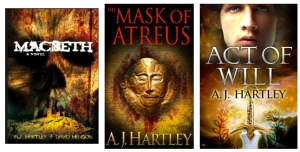
He's on twitter @authorajhartley
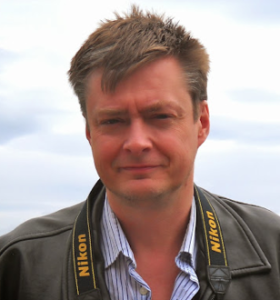
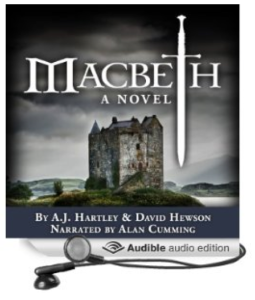


Thanks, Joanna, for this very engaging interview with A.J. Hartley–which I listened to, as I often do with your podcasts, while cleaning the bathroom on a Saturday afternoon. As a former academic myself (PhD philosophy), self-published author of a (comic) thriller, and an amateur actor who last fall played the title role in my local community theater’s production of Macbeth, the interview happily rang several bells with me. A couple of things I thought might come up in the interview, however, didn’t come up and I thought I might mention them here:
First, how snugly Macbeth, i.e. Shakespeare’s play, itself falls into the thriller genre. Macbeth is Shakespeare’s shortest tragedy and is quite fast-paced and exciting even on the page. And with its themes of revenge, murder, and demonic possession, it is easy to think of it as a thriller of its day. I believe this is how Shakespeare meant it to be taken and how his Elizabethan audiences took it. I’m sure A.J. and David Hewson had all this very much in mind when they chose to pursue their adaptation of the story. A more general point related to this: especially when it comes to Shakespeare, I think it’s a mistake to think of him as “high-brow” or “up-market” or “literary,” as opposed to today’s popular genre fiction. We unfortunately tend to think of Shakespeare’s work as set in amber, but in its day it was enormously popular and in many respects as “genre” as you please. This is important to remember, I think, because it keeps us from assuming that popular books cannot deal with substantial philosophical, even theological themes. Think of Graham Greene’s thriller writing, for example.
Second, I would have loved to have heard more about how A.J. has been so successful in securing the likes of Alan Cumming and Richard Armitage, A-list acting talents, to read his audio books. I know the publishing house did the heavy lifting in securing them, but still, those two are not your garden-variety voice artists and I would love to have heard how it all happened.
Thanks again for a wonderful interview and congratulations to A.J. I’m also delighted to report that my bathroom is now sparkling clean!
Cheers,
Daniel